Unsung heroes in ‘War of the Rohirrim’
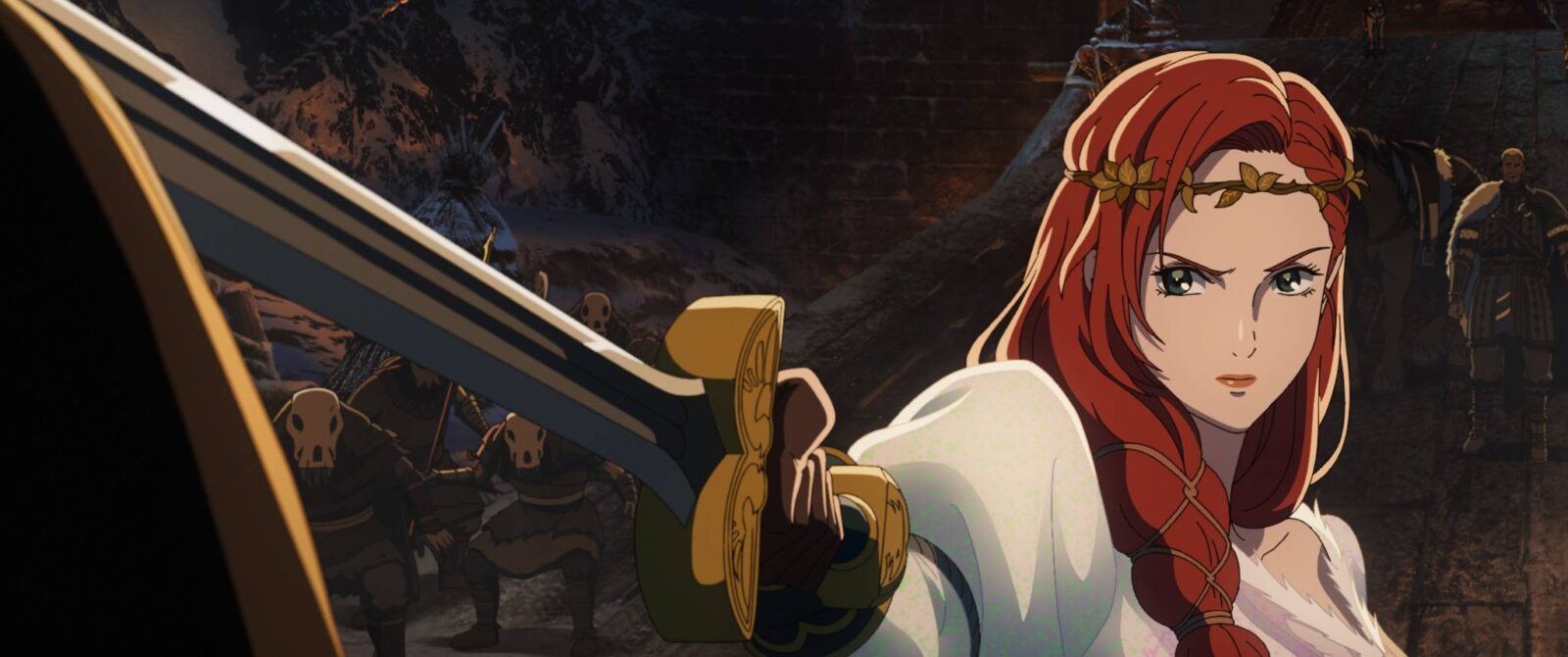
If you’re a Tolkien-head then you’re probably enjoying this era, what with a new animated movie in theaters and Prime Video paying for one of the most expensive television shows ever made, basically adapting “The Silmarillion.”
“The Rings of Power” recently concluded its second season (of an estimated five), and while it’s a show made with the consent and license of the Tolkien estate, it has no involvement from Peter Jackson, director of the Lord of the Rings and Hobbit trilogies. Which might come as a surprise considering the entire look of the show, from costumes to props to sets, looks like they were all studying Jackson and WETA workshop (his special effects company)’s work.
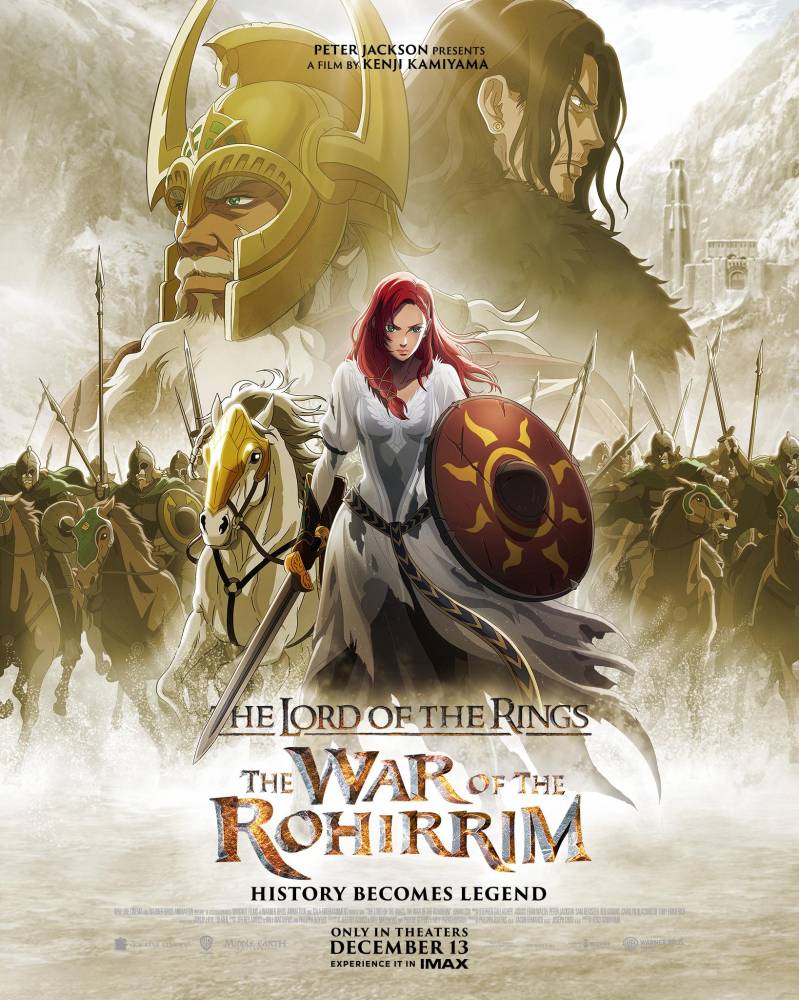
“The Lord of the Rings: The War of the Rohirrim” marks Jackson’s semireturn to Middle-Earth. He serves as executive producer on the new movie, which features a story credit by his frequent cowriter Philippa Boyens. Narrating the tale is Eowyn, voiced by her actress in the Jackson films, Miranda Otto. It tells the tale of an unsung hero of Middle-Earth, and how Helm’s Deep came to be known by that name. This takes place around 200 years before the Fellowship.
Helm Hammerhand (Brian Cox) is the King of Rohan, and he has two sons and a daughter. The daughter, Hera (Gaia Wise), is our main character, a fierce and free-spirited individual. When a Dunlending lord named Freca gets killed in a duel by Hammerhand, his son Wulf (Luke Pasqualino) swears revenge. Wulf and his kinsmen are banished, but over the years muster allies and stage an attack, forcing the Hammerhands and their people to seek refuge in the stronghold known as the Hornburg.
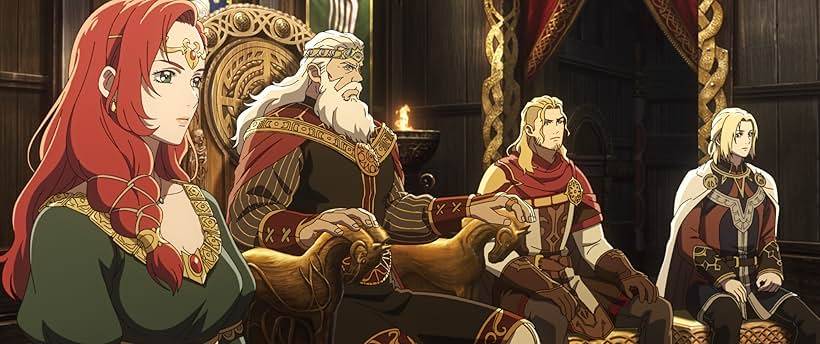
Unexpected departure
In an unexpected departure, the movie is not just animated, but helmed by Kenji Kamiyama, an anime veteran who has a number of credits to his name. He’s been involved with different franchises, from “Ghost in the Shell,” “Ultraman,” “Star Wars,” and “Blade Runner.” The character designs look like they’re from anime veterans as well, though the costumes, weapons, and locations look to be based on the Jackson films’ designs.
The story isn’t exactly groundbreaking; a daughter who has to contend with the patriarchy in order to save her people will ring familiar to audiences, but a formula executed well is still effective, and Hera is a winning character. She is quick on her feet, smart, resourceful, and not afraid to disagree with her father.
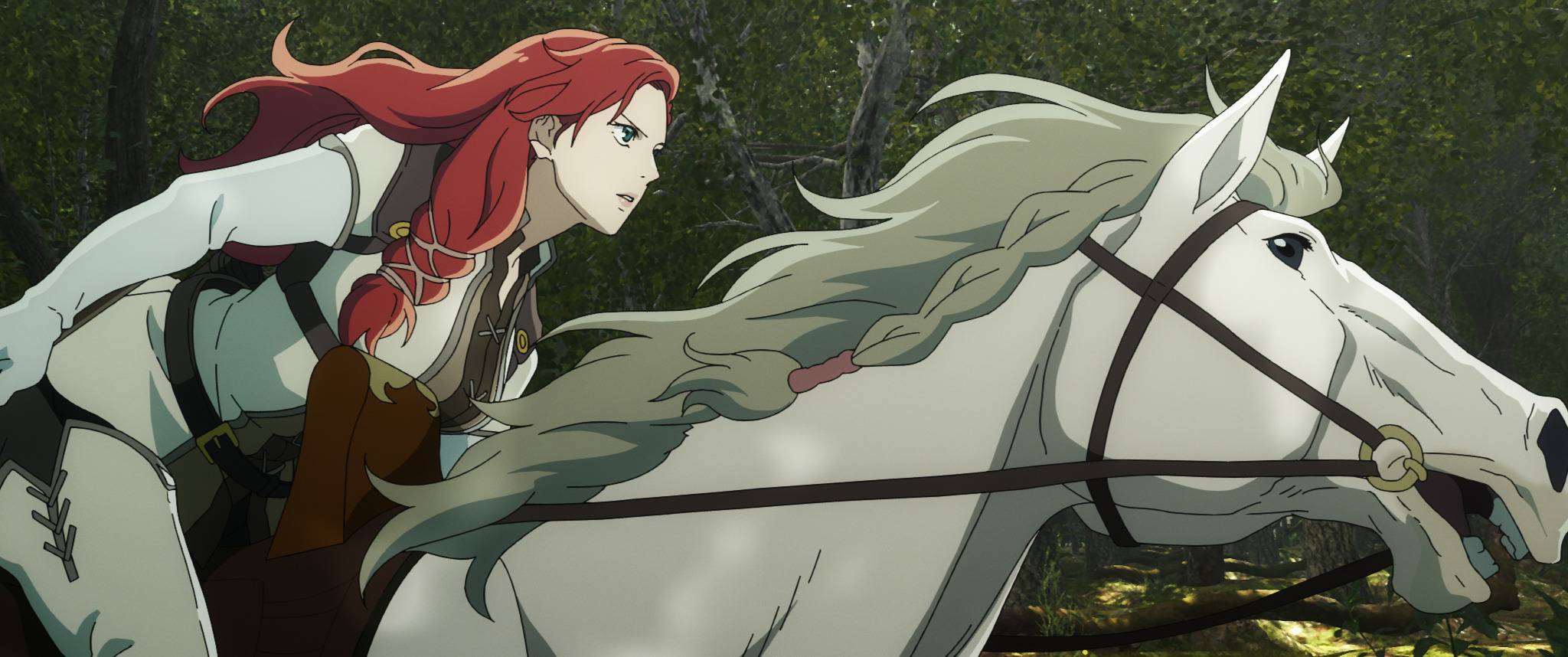
While Warner Bros. Entertainment deserves some credit for this PG-rated animated theatrical feature that presents as anime but in the world of Middle-Earth, perhaps more time or a bigger budget could’ve been allocated, because where “Rohirrim” suffers most is in the occasionally wonky fluidity of the animation, feeling more akin to WB’s many straight-to-video animated DC movies than anything to be given a proper theatrical rollout. Kamiyama’s sequences, as well, leave something to be desired as far as the grandeur and dynamism that we already know he is capable of through works like “Jin-Roh: The Wolf Brigade.”
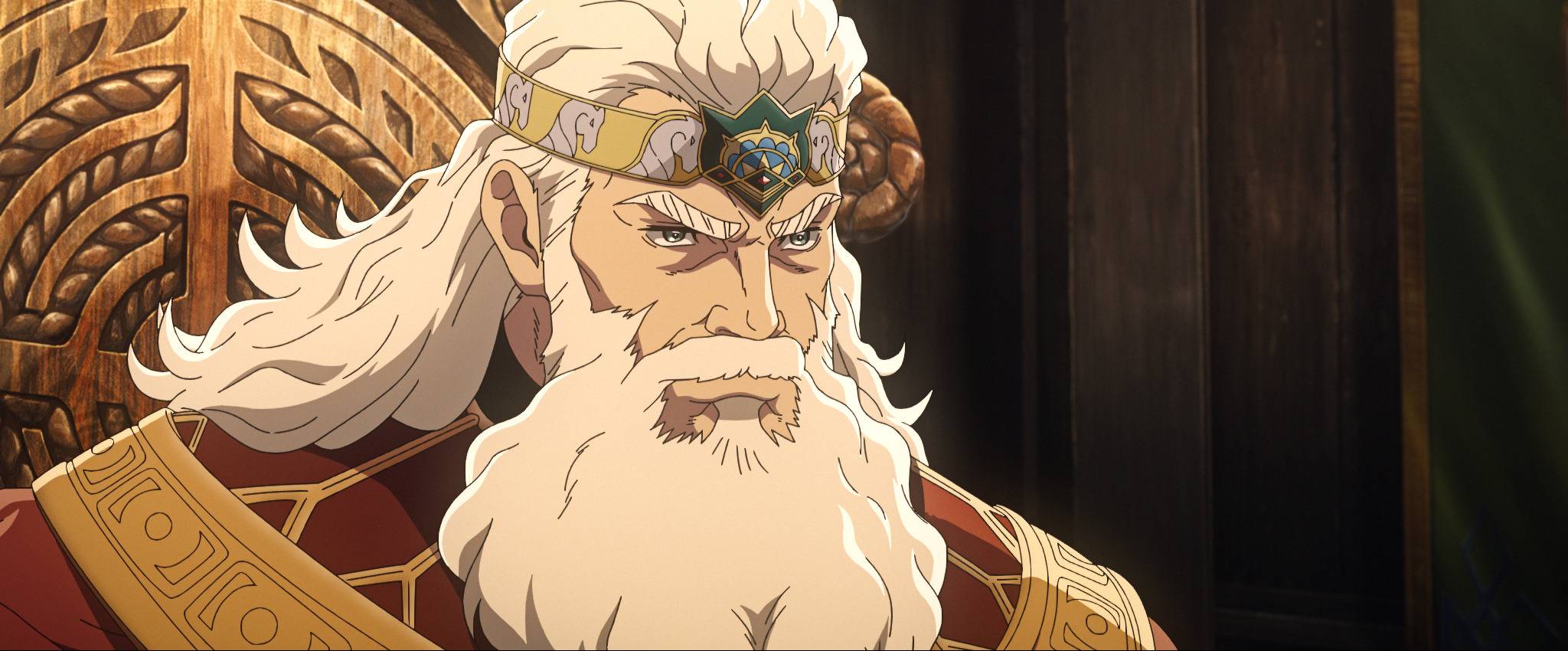
Surprising moves
The movie does have some surprising moves in it, for example a turn to horror for an extended period, with the siege of Hornburg as the backdrop. This feels like the Jackson influence, and is most welcome. Even the promised war itself comes not as a surprise attack or armies clashing in the usual way; the siege allows for more drama to unfold, more tension to be wrung, more psychological questioning for the characters.
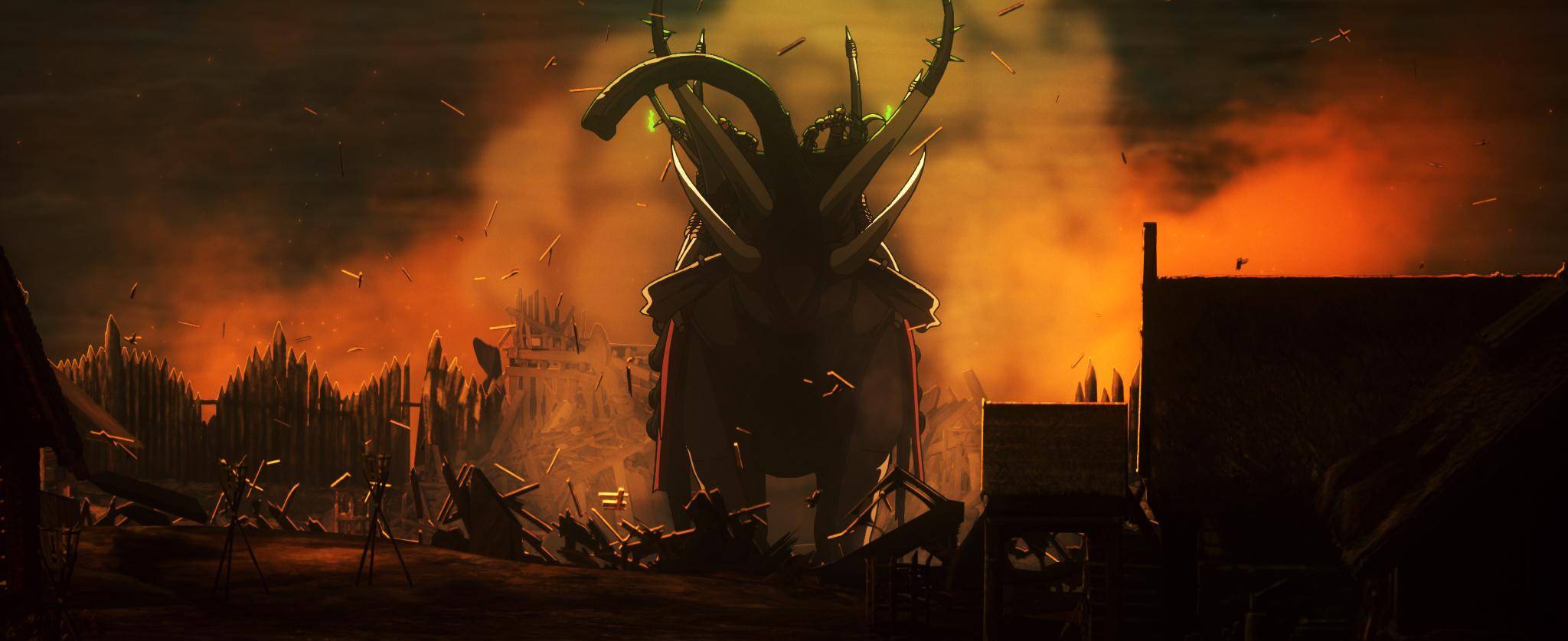
The fan service is also a speedbump at times, cameos and references given too much weight and loftiness slows down the momentum. There’s also some unresolved questions like is the crone in Hornburg a witch? Does Helm have some kind of supernatural powers (at one point he seems to take on a cave troll)?
“Rohirrim” is at its best when it presses its advantage, which is Hera. Her fortitude in the face of ridiculous odds and her optimism and faith might be naivete, but she is also a woman forged by her trials. Middle-Earth isn’t rid of its patriarchy because of her; narrator Eowyn will deal with it herself in 200 years’ time. At the beginning of the film, she deals maybe the saddest line in the movie, saying we shouldn’t look for songs about Hera because there aren’t any. Even the womens’ victories are buried by time, though they struggle on mightily and with little reward.

















